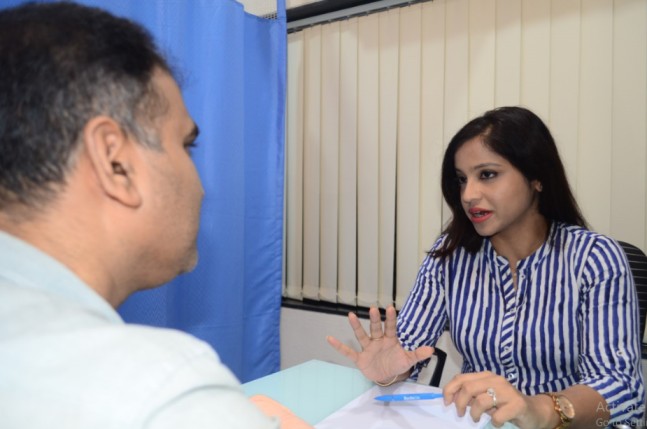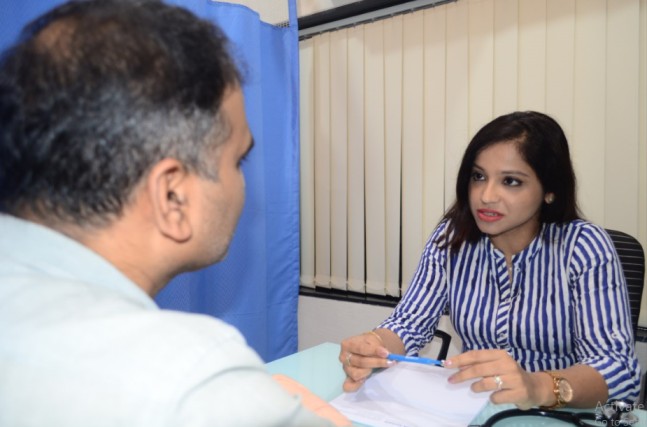




Name
Dr. Sneha Naik Samant
Contact number
+91 0222 887 1999
drsnehanaiksamant@gmail.com
SPeciality
Psychiatrist
Degree
MBBS, DPM(Mumbai)
Registrations
DPM(Psychiatry) from College of Surgeons and
Physicians, Parel, Mumbai.
Worked in a 100 bedded rehabilitation and deaddiction
centre in vasai -2 years.
Worked in LTMMC (Sion)hospital and BDBA(Shatabdi )hospital for 2.5 years.
Observership under many prominent psychiatrists in Mumbai.
Attached to several private hospitals as consultant psychiatrist.
OVERVIEW
In recent times psychiatry and positive mental health are gaining huge importance. We need to understand that our mind controls our body and a healthy state cannot be achieved without caring for your body as well as mind. Each one of us suffers from mental illness at some point in our lives, but very few of us seek help. Mental illnesses are no more considered a taboo and are very much treatable. So we should come forward and seek help and also encourage other to do so.
Gender is correlated with the prevalence of certain mental disorders, including depression, anxiety and somatic complaints. For example, women are more likely to be diagnosed with major depression, while men are more likely to be diagnosed with substance abuse and antisocial personality disorder. There are no marked gender differences in the diagnosis rates of disorders like schizophrenia, borderline personality disorder, and bipolar disorder. Although, men are at risk to suffer from post-traumatic stress disorder (PTSD) due to past violent experiences such as accidents, wars and witnessing death, women are diagnosed with PTSD at higher rates due to experiences with sexual assault, rape and child sexual abuse. People who identify as gender queer show increased risk for depression, anxiety and post-traumatic stress disorder.
Child and adolescent psychiatry or pediatric psychiatry is a branch of psychiatry that focuses on the diagnosis, treatment, and prevention of mental disorders in children, adolescents, and their families. It investigates the biopsychosocial factors that influence the development and course of these psychiatric disorders and treatment responses to various interventions.
De-Addiction is the process of medical or psychotherapeutic treatment for dependency on psychoactive substances such as alcohol, prescription drugs, and street drugs such as cannabis, cocaine, heroin or amphetamines. The general intent is to enable the patient to confront substance dependence, if present, and cease substance abuse to avoid the psychological, legal, financial, social, and physical consequences that can be caused, especially by extreme abuse. Treatment includes medication for depression or other disorders, counseling by experts and sharing of experience with other addicts.
Age-related memory loss, sometimes described as “normal aging”, is qualitatively different from memory loss associated with dementias such as Alzheimer’s disease, and is believed to have a different brain mechanism.
Emotional and behavioral disorders (EBD) also known as behavioral and emotional disorders (ICD-10) refer to a disability classification used in educational settings that allows educational institutions to provide special education and related services to students who have displayed poor social and/or academic progress.